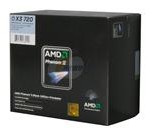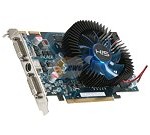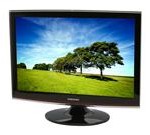It’s been a while since my last “If I were to buy a new computer today …” blog, and a lot has changed since then, most notably the introduction of new processor lines from both Intel and AMD.
First, a little bit of history. Back in September 2007, I first wrote about what I would be looking for in a computer if I were buying one today. To get a better idea of the kind of system I’m looking for, please refer to the original blog entry, but to sum up, it would be a system for playing the latest 3D games as well as a system ready for Blu-ray playback, but one that is reasonable in price and without the need for overclocking. But overall, it’s all about the price performance ratio and finding the best system that offers the best ratio (so not necessarily a “budget” system, nor a “high-end” one).
I will format this post a little different than previously, as I will be explaining the various parts up front, and then listing the specs table. I will also be looking at US parts and prices, despite being located in Australia, since this avoids issues with the exchange rate. Got a lot to go through, so let’s get started …

AMD Phenom II X3 720
CPU: Since the last post, Intel has released its Nehalem series, now called the Core i7. AMD has been busy as well, releasing a less radical processor in the Phenom II. I don’t want to get into it too much, but suffice to say that the i7 is way overpriced at the moment, especially if you add in the cost of expensive motherboards. The Phenom II series make more sense from the financial point of view, although it’s far behind the i7 in terms of performance. I’ve chosen the Phenom II X3 720, as it costs less than the ageing Phenom X4 9950, and offers slightly better performance. Yes, you miss out on one core, but then it offers an extra core compared to Intel’s Core 2 Duo range (which costs a lot more).
Pick: AMD Phenom II X3 720
Alternative: AMD Phenom II X4 810 – an extra core if you really need all four
Motherboard: The choice would be between a AM2+ or AM3 motherboard due to our CPU pick. The basic difference is that AM3 supports DDR3, whereas AM2+ supports only DDR2 – both will support the Phenom II processor. So while AM3 is more future proof, AM2+ is better value at the moment if you add in the cost of RAM. With the economy the way it is, I’m going with AM2+. I’m going with the 790X chipset, since the FX’s quad GPU support is not a must have feature. I’m sticking with a brand I know, Gigabyte.
Pick: Gigabyte GA-MA790X-UD4P
Alternative: Gigabyte GA-MA790GP-UD4H – if you don’t need gaming, then the onboard Radeon HD 3300 will provide excellent Blu-ray decoding acceleration for $20 more than the MA790X-UD4P
RAM: DDR2 is cheap and plentiful. 4GB is enough for today’s applications, especially if you’re still going to use a 32-bit OS. You’ll probably have your own preferences in terms of brand, but I’ve chosen Corsair 2 x 2G DDR2 1066 RAM at CAS 5.
Pick: Corsair XMS2 PC2 8500 CAS 5 (2 x 2G)
Alternative: Corsair XMS2 PC2 6400 CAS 4 (2 x 2G) – if you want an extra bit of performance, go with these CAS 4 rated DDR2 800 RAM
HDD: TB drives are all the rage, so we’re going with two of the Samsung F1’s which are quiet and fast. We’re going with two for a simple RAID 1 setup, but you can grab more or less depending on which RAID you want or don’t want.
Pick: 2 x SAMSUNG Spinpoint F1 HD102UJ 1TB
Alternative: Go with just a single drive for a non RAID setup, or a RAID 5 setup with 3 drives

HIS Radeon HD 4850
Video Card: ATI’s 4800 series has been extremely popular, in terms of both price and performance. This is one area where it really depends on your needs, whether you want the best gaming performance, some gaming performance, or none at all (if so, then going with the motherboard with integrated graphics is the best choice – see above). The NVIDIA range seems expensive for the power they provide, and you should really only consider the top range cards for top performance. In the mid range, I still prefer the Radeon HD 4850 series for those who wants to dabble in gaming, but don’t mind turning down a few details here and there. The brand of the card is up to individuals, and you’ll have to look at the included HSF, software bundle and such (I’ve picked the HIS with free copy of S.T.A.L.K.E.R: Clear Sky until the end of May).
Pick: HIS Hightech H485FN512P Radeon HD 4850 512MB
Alternative: HIS Hightech H487FN1GP Radeon HD 4870 1GB – the 4870 comes with more performance, 1GB of faster GDDR5 RAM as well, for those that want the few extra FPS
Sound Card: Still going with a on-board solution, which works well for most people that don’t require audiophile level quality. With ATI’s Radeon HD range, you can output audio via the graphics card’s HDMI as well.
Optical Drive: Still sticking with a Blu-ray reader drive. My thinking is that when Blu-ray media becomes cheap enough for everyday use, then drives will be dirty cheap and much faster than current offerings, so it’s not worth buying a Blu-ray burner drive at the moment. Of course, if you really must have 50GB of storage per disc, regardless of the price, then these drives are not too expensive.
Pick: LG GGC-H20L Blu-ray/HD DVD reader, CD/DVD burner
Alternative: LG GGW-H20L Blu-ray/CD/DVD burner, HD DVD reader – add Blu-ray burning for $70 more

Samsung T240HD
Monitor: 22″ seems to be the sweet spot in terms of price, but I prefer 24″. You can spend a little, or a lot here, and it really depends on your needs. But I like to spend a bit more on your monitor, because a good one can last several computers, and it’s the only part of your PC that you have to interact with everyday. Most people would probably want a 16:10 ratio monitor, this will give you 1920×1200 resolution. However, there are more monitors carrying the 16:9 ratio (1920×1080, 1080p), which is the same ratio used by widescreen TVs and is most suited for connecting to game consoles or Blu-ray players. The problem with these 1080p displays is that it lacks the vertical resolution of 16:10 monitors (1200 lines versus 1080 lines), and so you won’t be able to display resolutions like 1600×1200 for example, despite having a horizontal resolution that’s greater than 1600. I went with the Samsung T240HD because it had HDMI input (the more popular 2443BWT does not). If you are serious, then look for S-IPS or VA type displays, including the Dell UltraSharp range.
Pick: Samsung T240HD 24″
Alternative: ASUS VW246H – A cheaper 24″ with 16:9 as opposed to 16:10 (lower vertical resolution), good for Blu-ray
Case: I’m keeping with the Antec Sonata Designer, which comes with a quality 500W power supply that is more than enough to power the above system.
Pick: Antec Sonata Designer 500
Alternative: RAIDMAX SMILODON ATX-612WBP – a more fancier, yet cheaper option, also with a 500W power supply
So that’s the system picked out. All you need is to add an OS (get XP, and then wait for Windows 7), and a keyboard/mouse combo. Here’s the full system spec and prices (note that comparison with October 2008 prices removed since that was for Australian prices, and this time, we’re using latest Newegg.com prices) – changed parts in blue, unchanged in black:
| Type: | October 2008 Part: | May 2009 Part: | October Price ($USD): |
May Price ($USD): |
| CPU: | Intel Core2Duo Q8200 | AMD Phenom II X3 720 | – | $139 |
| Motherboard: | Gigabyte GA-EP45T-DS3R | Gigabyte GA-MA790X-UD4P | – | $110 |
| RAM: | Corsair 2 GB DDR3 PC-10600 | Corsair XMS2 PC2 8500 CAS 5 (2 x 2G) | – | $69 |
| HDD: | 2 x Samsung 750GB 7200RPM 32MB SATA2 | 2 x Samsung 1TB 7200RPM 32MB SATA2 | – | $150 |
| Video Card: | NVIDIA GeForce GTX260 896 MB (Gigabyte) | ATI Radeon HD 4850 512MB (HIS) | – | $100 |
| Sound Card: | In-Built | In-Built | N/A | N/A |
| Optical Drive: | Pioneer BCD-S02 | LG GGC-H20L | – | $100 |
| Monitor: | Samsung 24″ 2433BW | Samsung T240HD 24″ | – | $330 |
| Case: | Antenc Sonata Designer | Antec Sonata Designer | – | $140 |
| Total Price ($USD): | $1,403 | $1,158 | ||
So that’s a system that will play all the latest games, albeit not always at the highest quality, and will play Blu-ray movies without breaking a sweat. It’s not the cheapest system available, but it’s full of quality parts and it will last you many years.
For the next issue, it will all be about waiting for the Core i7 prices to drop, perhaps Intel could release a few lower spec’d models at lower prices to compete with the AMD chips. Otherwise, the Core 2 Duo line-up doesn’t fare too well compared to the new Phenom II’s.
See you in a few month’s time …

